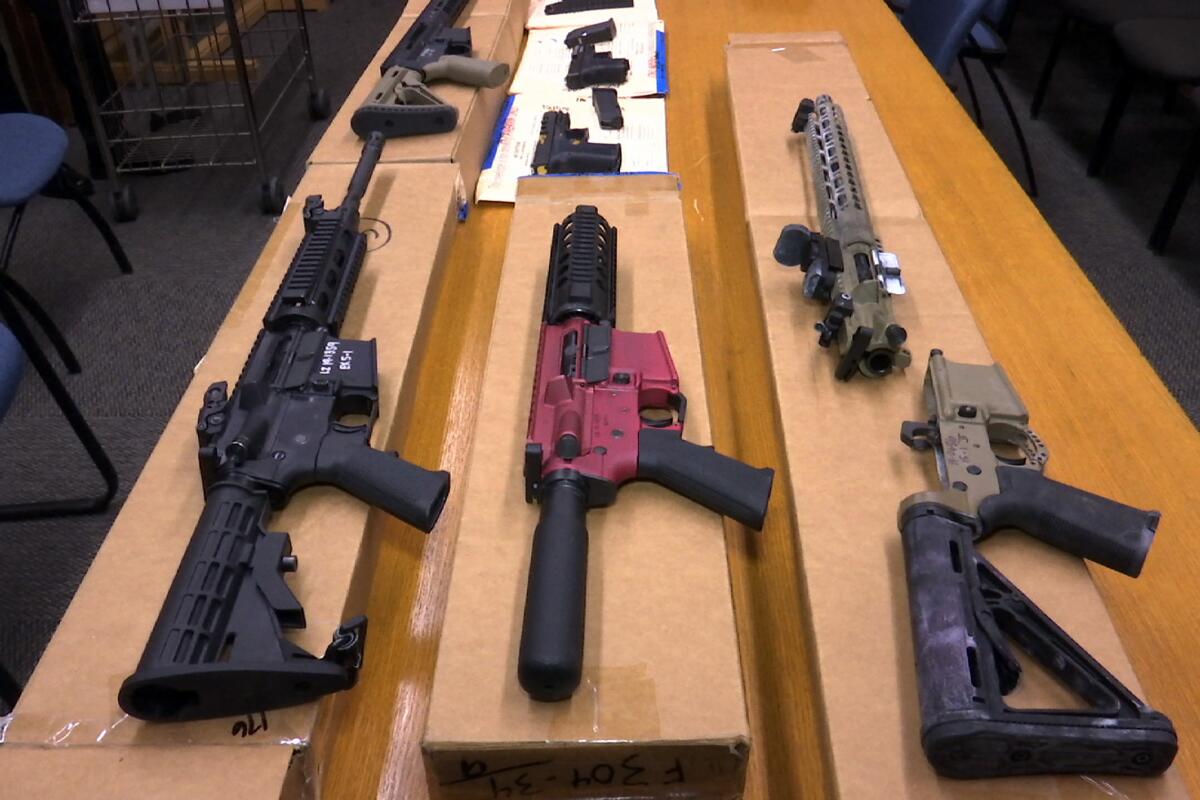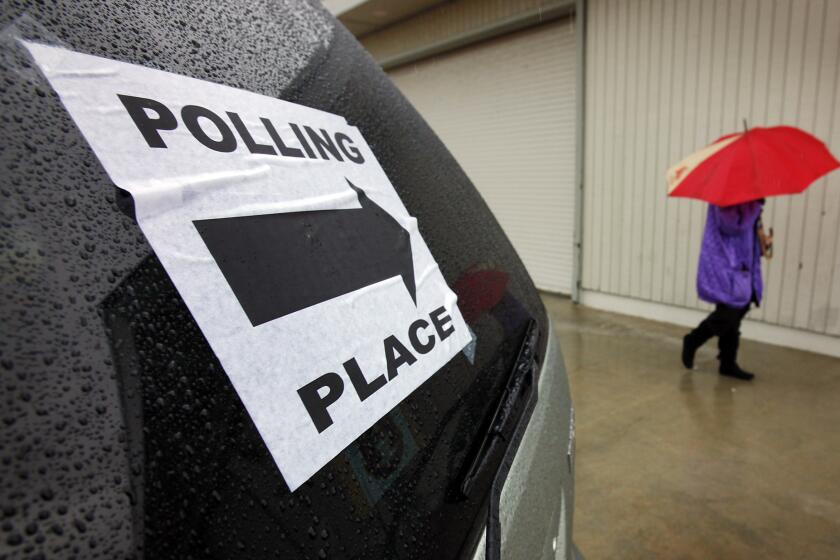Supreme Court revives federal rules against ‘ghost guns’

WASHINGTON — The Supreme Court on Tuesday granted an emergency appeal from the Biden administration and revived federal rules that forbid the sale or use of assembled guns that can be bought online and are untraceable.
The justices set aside a Texas judge’s order from last month that had voided the federal rules on these “ghost guns.”
The vote was 5 to 4. Justices Clarence Thomas, Samuel A. Alito Jr., Neil M. Gorsuch and Brett M. Kavanaugh dissented.
This gun-rights dispute does not turn on the 2nd Amendment, but it has great practical significance.
Police in California say ghost guns have been surging in number and put lethal weapons in the hands of criminals and teenagers who cannot legally buy a gun from a licensed dealer.
U.S. Solicitor Gen. Elizabeth Prelogar appealed to the high court on July 27 and urged the justices to lift the nationwide order handed down by U.S. District Judge Reed O’Connor in Fort Worth.
O’Connor ruled in favor of several Texas gun owners and a gun dealer who argued the Gun Control Act of 1968 and its definition of a “firearm” does not extend to the unassembled parts of a working gun.
Prelogar described this ruling as far-fetched and dangerous.
Unless repealed, it “would allow anyone with access to the internet to anonymously buy a parts kit or partially completed frame or receiver and easily assemble a working firearm in as little as 20 minutes,” she said. That “would virtually repeal the core provisions of the federal firearms laws. And by making untraceable guns freely available to felons, minors, and other prohibited persons, it would endanger the public and thwart efforts to prevent and solve serious crimes.”
Last year, the White House announced a crackdown on ghost guns and revised the federal definition of a firearm to make clear that a parts kit that allows a purchaser to readily assemble an operational weapon is a “firearm.”
“Every speaker of English would recognize that a tax on sales of ‘bookshelves’ applies to IKEA when it sells boxes of parts and the tools and instructions for assembling them into bookshelves,” the solicitor general said in her appeal in the case of Garland vs. Vanderstok. The district judge’s “insistence on treating guns differently contradicts ordinary usage and makes a mockery of Congress’ careful regulatory scheme,” she said.
The government had appealed to the 5th Circuit Court in New Orleans, which refused to lift the judge’s order.
California state attorneys joined the District of Columbia and 13 other states in urging the Supreme Court to revive the federal rules on ghost guns.
They said that even in states such as California that forbid the manufacture and sale of weapons with no serial numbers, the previous “federal inaction has enabled individuals to circumvent state gun laws and bring unserialized weapons into the very states that have been trying to keep them out. For example, even though California has attempted to curb unserialized guns since at least 2016, these weapons accounted for nearly 30 percent of all guns recovered in the state by the [Bureau of Alcohol, Tobacco, Firearms and Explosives]. Meanwhile, the number of unserialized guns recovered by California law enforcement agencies increased from 167 in 2016 to nearly 12,900 in 2022, a 77-fold increase.”
The Supreme Court agreed earlier to hear arguments this fall on whether persons who are subject to restraining orders for domestic violence lose their rights to have guns. In that case, U.S. vs. Rahimi, the administration is appealing a 5th Circuit ruling that held such orders violate the 2nd Amendment.
More to Read
Get the L.A. Times Politics newsletter
Deeply reported insights into legislation, politics and policy from Sacramento, Washington and beyond. In your inbox three times per week.
You may occasionally receive promotional content from the Los Angeles Times.











